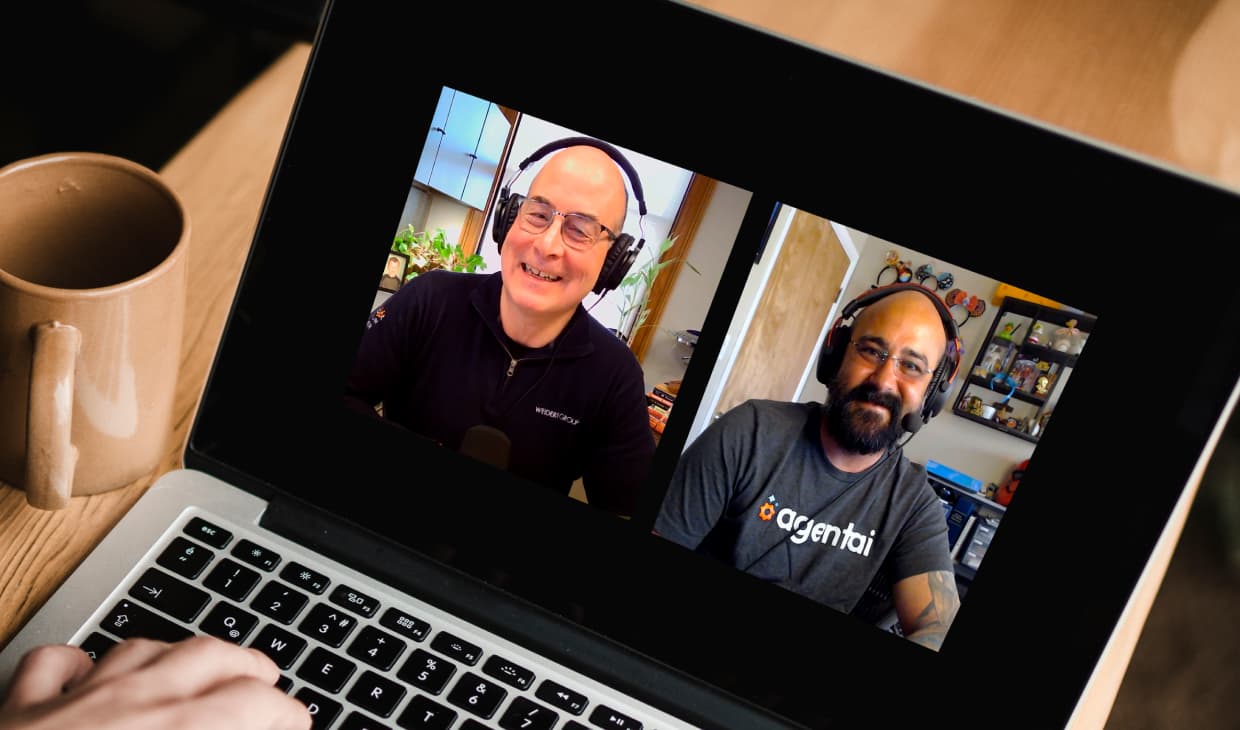Choosing B2B Marketing Channels & Formats: Engage Buyers On Their Turf & Terms
Written by
Today’s industrial buyer is on a journey across new terrain — and B2B marketers are challenged to even find them in fragmented digital spaces.
Many industrial marketers have found themselves watching their website traffic and conversions plummet. Yet, curiously, their sales may remain strong. So what’s going on?
Buyers are waiting longer to reveal themselves as prospects. They’re also looking for solutions to their challenges in lots of places besides your website, such as podcasts, industry forums, social media, and in chats with generative AI tools.
Fundamental marketing strategies are losing their edge as buyers are consuming and interacting with content differently than before.
To keep pace, marketers are taking a fresh look at their channel strategies and content format choices. But in a fragmented, fast-moving landscape, charting a path forward is no small challenge.
We asked, and marketers have told us they’re exploring new B2B marketing channels and content types to engage audiences. The question on everyone’s mind:
What’s the optimal content mix for connecting with today's industrial buyers?
The Changing Face of Industrial Marketing: New Channels & Content Trends
There’s no universal formula, but a few trends are on the rise and deserve a closer look as prospects and customers look to engage in different ways:
Audio Renaissance
Podcasting has exploded as a medium for reaching busy B2B decision-makers. Branded shows cover everything from industry trends to technical deep-dives, and create collaborative and co-marketing opportunities, along with fresh ways to strengthen thought leadership, and even highly targeted advertising.
The Power of Edu-tainment
Buyers increasingly crave content that both informs and captivates. Formats like video tutorials, interactive guides, and gamified self-assessments are starting to take the place of traditional whitepapers and blogs. Caterpillar’s “Cat® Trials” video series is a standout example, racking up millions of views with its entertaining demos of equipment capabilities.
Precision-Targeting with Account-Based Marketing
ABM has matured into a core strategy for engaging high-value prospects. Industrial leaders are leveraging intent data, predictive analytics, and AI to personalize outreach at the account level. From dynamic web content to targeted ads and bespoke events, ABM enables full-funnel customization.
Interactive Tools with Personality
Immersive, utility-driven content is a powerful draw for industrial buyers. Augmented reality (AR) product visualizations, virtual facility tours, ROI calculators, and automated configurators offer tangible value while collecting valuable user data.
Authentic Peer Connections
As trust in traditional information sources wanes, peer insights and genuine connection carry outsize weight. Industrial marketers are orchestrating opportunities for knowledge-sharing, from expert-hosted AMAs (Ask Me Anything) to peer review programs. GE’s “Unimpossible Missions” video series spotlights customers pushing boundaries with the company’s technologies.
You can’t ignore this new content mix, but it takes a strategic, creative, and data-driven approach to maximize your marketing ROI. It starts with learning where your unique audiences spend time, and what formats resonate.
The common thread? A tight focus on understanding and adapting to evolving needs and preferences. By continually testing new formats and channels — and rigorously measuring results — industrial marketers can hone their own original recipes for their unique targets.
Video Transcript: Reinventing Marketing Strategy in a New Landscape, Part 2 — Adapting Channels & Formats
Hi, I’m Greg Linnemanstons, president of Weidert Group.
Global events and advances in technology have moved so much of our lives online. One might expect widespread digitalization makes it easier to find and connect with target audiences. And for a while, it did. But today, even some of the most tried and tested marketing tactics don’t perform like they once did. Prospects are waiting longer to reveal themselves and doing their buyer research differently now.
In a recent survey, marketers told us they’re urgently exploring new ways to adapt and evolve their strategies — both digital and traditional — to succeed in the face of disruption.
But which channels and formats perform best now? It’s a fragmented landscape, so it depends on your audience.
Podcasting is exploding in popularity. They’re convenient and easy for multitaskers to access on the go. Virtual and hybrid events are helping brands demonstrate thought leadership and host meaningful conversation, at scale.
Social media platforms like LinkedIn and Reddit are often a daily stop, no matter where a buyer is on their journey. Account-based marketing has evolved in terms of both tech and strategy. Programmatic advertising can help find, segment, and deliver customized messaging to precision-targeted audiences showing signs of purchase intent.
The right co-marketing or industry influencer partnership can lend authority, credibility, and awareness. So you have choices. But finding your people is just the beginning.
Content that engages will give those people the knowledge they need, in the formats they want:
- Video, both long-form and short-form, delivers value at some point in the majority of B2B buyer journeys. Interactive content like quizzes and calculators, boost engagement
- A live-stream hosted by a subject matter expert can give your brand a dose of authority — and humanity.
- Technology like AI is making it easier for B2B brands to offer on-demand engagement like 3D plant tours and always-on chatbots
You can’t ignore this new media mix, but it takes a strategic, data-driven, and creative approach to maximize your marketing ROI. It starts with learning where your unique audiences spend time, and what formats resonate.
Experiment with multimedia content that educates, inspires, entertains, and engages users. Test, learn, adapt, and test again.
Activate your subject matter experts as thought leaders in relevant channels and empower them to create microcontent. And don’t be afraid to tap into the power of co-marketing partnerships — with the right partners.
With a customer-centric mindset and data as your guide, B2B marketers can still cut through the noise and make meaningful connections.
That’s why, with our decades of deep experience in the industrial sector, we prioritize understanding our clients’ businesses, industries, objectives, and challenges first — because your channels and content strategies should be grounded in insights about your customers.
Whether your subject matter experts are ready to host the podcast your customers are waiting for, or your sales pipeline needs a turbo-charged programmatic ad campaign, or you’re ready to plan a live event that gets people talking, our teams can help you identify the right channels and formats to help reach your business goals — and bring your brand to life in powerful new ways.
When you’re ready to push beyond the status quo and engage with prospects, customers, and end users in new ways, let’s talk.
Keep a Human Focus in a Digital & AI-Driven World
Engaging today’s industrial buyers demands a new caliber of marketing agility and creativity. Cookie-cutter content isn’t going to cut it in an age of profound disruption and digitalization.
It’s a big undertaking. But with the right strategy, tools, and partners, you can harness disruption to propel your growth to new heights.
And if you’re ready to review your options for fresh strategies, get someone on your team to Experience Inbound on May 7 (in Milwaukee) or May 8 (in Green Bay). Together with our friends at Stream Creative, we’ve put together a terrific lineup for a great day of professional learning and networking.
Pick your date and location in Milwaukee or Green Bay and click below to register today.
Subscribe To Our Blog
Information. Insights. Ideas. Get notified every time a new Weidert Group blog article is published – subscribe now!
You May Also Like...

Artificial Intelligence
Revenue-Driving B2B Content Marketing Strategy with Andy Crestodina

Artificial Intelligence
AI Agents Are Here—How Smart Businesses Are Using Them Now

Inbound Marketing
Podcasting Playbook: What We Learned After 100 Days of Running a B2B Podcast
Accelerate Your Growth with
Weidert Group
If you’re ready to explore a partnership, request a personalized consultation with our team.

